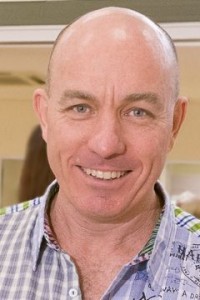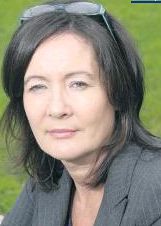Douglas Husack provides a cogent analysis of the drug laws debate, focusing on the various reasons that prohibitionists posit for criminalising drug use, as well as the various disadvantages of prohibition. (1,992 words)
Douglas Husack provides a cogent analysis of the drug laws debate, focusing on the various reasons that prohibitionists posit for criminalising drug use, as well as the various disadvantages of prohibition. (1,992 words)
 When I first became interested in Indigenous healing a number of years ago, I did a great deal of reading about the healing of trauma and intergenerational trauma. I summarised what I considered to be 12 principles of healing, which are relevant to Aboriginal people here in Australia and other Indigenous peoples around the world. I first posted about these principles on Sharing Culture in 2014 and then on The Carrolup Story in 2018.
When I first became interested in Indigenous healing a number of years ago, I did a great deal of reading about the healing of trauma and intergenerational trauma. I summarised what I considered to be 12 principles of healing, which are relevant to Aboriginal people here in Australia and other Indigenous peoples around the world. I first posted about these principles on Sharing Culture in 2014 and then on The Carrolup Story in 2018.
1. The Human Rights of Indigenous Peoples must be recognised and respected
Recognition of, and respect for, the Human Rights of Indigenous peoples is fundamental to improving their health and wellbeing. Society must ensure that Indigenous peoples have full and effective participation in decisions that directly or indirectly affect their lives.
 The documentary Bringing them home: separation of Aboriginal and Torres Strait Islander children from their families, found on the Australian Human Rights Commission YouTube channel, ‘was produced in 1997 and forms part of the Bringing them home education resource for use in Australian classrooms.
The documentary Bringing them home: separation of Aboriginal and Torres Strait Islander children from their families, found on the Australian Human Rights Commission YouTube channel, ‘was produced in 1997 and forms part of the Bringing them home education resource for use in Australian classrooms.
This resource is based on ‘Bringing them home’, the report of the National Inquiry into the Separation of Aboriginal and Torres Strait Islander Children from Their Families, and on the history of forcible separation and other policies which have impacted on the lives of Indigenous Australians.’
 When I first developed the educational healing resource Sharing Culture, I did a great deal of reading about the healing of trauma and historical trauma. I summarised what I considered to be 12 principles of healing, which are relevant to Aboriginal people here in Australia and other Indigenous peoples around the world. I have decided to make an article on these principles the first in our educational journey into Indigenous trauma and healing.
When I first developed the educational healing resource Sharing Culture, I did a great deal of reading about the healing of trauma and historical trauma. I summarised what I considered to be 12 principles of healing, which are relevant to Aboriginal people here in Australia and other Indigenous peoples around the world. I have decided to make an article on these principles the first in our educational journey into Indigenous trauma and healing.
1. The Human Rights of Indigenous Peoples must be recognised and respected
Recognition of, and respect for, the Human Rights of Indigenous peoples is fundamental to improving their health and wellbeing. Society must ensure that Indigenous peoples have full and effective participation in decisions that directly or indirectly affect their lives.
This resource is based on ‘Bringing them home’ , the report of the National Inquiry into the Separation of Aboriginal and Torres Strait Islander Children from Their Families, and on the history of forcible separation and other policies which have impacted on the lives of Indigenous Australians. Australian Human Rights Commission. [32’29”]
 When I first developed the educational healing resource Sharing Culture back in 2014, I did a great deal of reading about the healing of trauma and historical trauma. I summarised what I considered to be 12 principles of healing, which are relevant to Aboriginal people here in Australia and other Indigenous peoples around the world.
When I first developed the educational healing resource Sharing Culture back in 2014, I did a great deal of reading about the healing of trauma and historical trauma. I summarised what I considered to be 12 principles of healing, which are relevant to Aboriginal people here in Australia and other Indigenous peoples around the world.
1. The Human Rights of Indigenous Peoples must be recognised and respected
Recognition of, and respect for, the Human Rights of Indigenous peoples is fundamental to improving their health and wellbeing. Society must ensure that Indigenous peoples have full and effective participation in decisions that directly or indirectly affect their lives.
Read More ➔
 An excellent article by Tim Carey on Mad in America.
An excellent article by Tim Carey on Mad in America.
‘A growing appreciation of the importance of involving people in their own health care has seen the development of initiatives such as “patient-centred care.” Patient-centred care has been defined as “providing care that is respectful of and responsive to individual patient preferences, needs, and values, and ensuring that patient values guide all clinical decisions.” (Institute of Medicine, 2014)
While this definition seems reasonable enough, it appears to be very difficult to translate into practice; particularly in the area of mental health.
It is not always clear in mental health, for instance, that it is patients’ values that guide all clinical decisions. I experienced some of this when I began to develop a system of mental health service delivery which I came to call “patient-led” treatment.
 It’s good to see a reminder about Human Rights, in particular in relation to mental health services. This article which appeared in the Huffington Post is from the Chief Executive of the mental health charity Mind.
It’s good to see a reminder about Human Rights, in particular in relation to mental health services. This article which appeared in the Huffington Post is from the Chief Executive of the mental health charity Mind.
‘Thankfully most people never have to worry about their human rights. For many, they can seem fairly distant: something for lawyers and politicians to worry about, with little impact on our own everyday lives.
When we do hear about human rights in the media it’s usually via a story that links them with supposedly ‘undeserving’ groups or used as a proxy for anti-European views. But this picture hides the uncomfortable truth that people in the UK do still have their rights abused.
People with mental health problems often fall through the human rights safety net. The mental health system has extensive powers to detain people, to deprive them of their liberty, to restrain them and to force people to take life-changing drugs.
 ‘Speech written for the protest of the American Psychiatric Association – May 4, 2014
‘Speech written for the protest of the American Psychiatric Association – May 4, 2014
My name is Leah Harris and I’m a survivor. I am a survivor of psychiatric abuse and trauma.
My parents died largely as a result of terrible psychiatric practice. Psychiatric practice that took them when they were young adults and struggling with experiences they didn’t understand. Experiences that were labeled as schizophrenia. Bipolar disorder.
My parents were turned from people into permanent patients. They suffered the indignities of forced treatment. Seclusion and restraint. Forced electroshock. Involuntary outpatient commitment. And a shocking amount of disabling heavy-duty psychiatric drugs. And they died young, from a combination of the toxic effects of overmedication, and broken spirits.
“I think what we need to do is to just talk about fundamental rights. I think it is such a basic right that someone who is coming for healthcare should receive that healthcare without any judgement.”
An excellent video from the Australian Injecting & Illicit Drug Users League (AIVL). ‘A short video of professionals and drug users discussing the impact of stigma and discrimination towards people who inject drugs.’
 I was greatly moved by this recent article on Mad in America. Having spent 25 year working as a neuroscientist and interacting with drug companies and psychiatrists, i can see the frustrations (and the hypocrisy of the system) here:
I was greatly moved by this recent article on Mad in America. Having spent 25 year working as a neuroscientist and interacting with drug companies and psychiatrists, i can see the frustrations (and the hypocrisy of the system) here:
‘In 2009, my friend Leonie’s 22-year-old son Shane killed himself and another young man after taking Citalopram for 17 days.
Shane is the kind of son every mother dreams of. A student at prestigious Trinity College in Dublin, he was devoted to his younger brothers and sister, regularly gave money and the clothes off his back to homeless people, didn’t drink or smoke and was kind, handsome, gentle and much loved by his family, friends and college professors.
“We started Mad in America as a webzine in February of 2012 and we launched it with the thought that it would become a forum for rethinking psychiatry and also for building a community of people, an international community of people interested in that topic.”
I love the Mad in America website and have been inspired by Robert Whitaker’s books. We’ll be referring to content on this website a great deal. In this short film clip, Robert describes the purpose, history, achievements, community, and future plans of Mad In America.
The Elders are deeply saddened by the death of their founder Nelson Mandela, and join millions around the world who were inspired by his courage and touched by his compassion.
I have just received the email below. Last week, I attended an aboriginal healing retreat and had spiritual experiences that confirmed my commitment to helping the Indigenous people of Australia tackle addiction and mental health problems and other consequences of historical trauma.
This email reminds me of the scale of the problem. The video touched my inner soul. I am so happy I have made this commitment. I know the journey ahead is a long one.
Please support this cause, first by sending this blog and the website link out to as many people as possible. Thank you.
Stories of people recovering from a serious substance use problem are an important tool for understanding the processes involved in recovery, showing people with a problem that recovery is possible via a multitude of different pathways, and helping communities create empathic environments in which recovery can flourish.
More about the book >>
Available now as a downloadable eBook
Connection uses ‘faces’ and ‘voices’ of the past to take you into a world where Aboriginal children rise above great adversity to create beautiful landscape drawings that are acclaimed on both sides of the world. Connection is a story of trauma, and the overcoming of trauma. A story that resonates in today’s world of the oppressed and their oppressors. A story of Hope, Heart and Healing.
‘… the book is nothing short of incredible.’
Carlie Atkinson, CEO, We Al-li Programs
Copyright © 2025 · Magazine Child Theme on Genesis Framework · WordPress · Log in